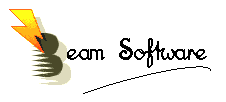Difference between revisions of "Beam Software"
From Sega Retro
| (2 intermediate revisions by the same user not shown) | |||
| Line 1: | Line 1: | ||
{{CompanyBob | {{CompanyBob | ||
| logo=Beamsoftware_logo.png | | logo=Beamsoftware_logo.png | ||
| − | |||
| founded=1977 | | founded=1977 | ||
| defunct= | | defunct= | ||
| − | + | | mergedwith=[[Infogrames]] (1999-04-09{{ref|https://web.archive.org/web/20010422050222/http://www.infogrames-corporate.com/actualite/even_acqui/12_04_99.htm}}) | |
| − | | mergedwith=[[Infogrames]] (1999) | ||
| mergedinto= | | mergedinto= | ||
| headquarters=Melbourne, Australia | | headquarters=Melbourne, Australia | ||
Latest revision as of 12:35, 10 November 2024

| ||
| Beam Software | ||
|---|---|---|
| Founded: 1977 | ||
| Merged with: Infogrames (1999-04-09[1]) | ||
Headquarters:
|
Beam Software was an Australian video game development studio based in Melbourne.
Contents
History
The original company Melbourne House Ltd. was founded in 1977 by Alfred Milgrom and Naomi Besen. Starting as a general publishing company, it soon focused on home computers. In August 1980, Melbourne House published one of the first books ever for the personal computer market and started to distribute games created in the US.
In the same year, Milgrom and Besen founded Beam Software as a subsidiary, Australia's first electronic game company, initially focusing on development for the Sinclair ZX-80, and ZX-81. By 1982, Beam had become so successful that book publishing was phased out and the company started to concentrate solely on publishing Beam-created games. Beam developed the Horace series for the Spectrum and released The Hobbit in 1982.
Despite very successful years in 1985 and 1986 with the sales of The Way of the Exploding Fist, Melbourne House ran into financial problems. In 1987, the UK publishing arm and the name Melbourne House were sold to Mastertronic Ltd., a publisher and distributor of low-budget games. Due to a contractual dispute between Beam and Mastertronic, none of the work developed in 1987 was published. Mastertronic itself became a part of Virgin Games, Ltd. and the name Melbourne House was held there. Beam became an independent entity.
From the late 1980s through 1990s, Beam focused on developing games for all major platforms. In 1999, Melbourne House was sold to Infogrames, which included the computer games division and Hotgames.com, a portal for games enthusiasts, to extinguish $12 million of debt.
The next year, in 2000, Beam changed its name to Blaze International. The company started developing software and provided services for entertainment, telecommunications and Internet applications. From then on, Beam (Blaze) was no longer associated with the game industry and the story continued with the division sold to Infogrames, renamed Infogrames Melbourne House Pty Ltd.
In November 2006, the company was acquired by Krome Studios and renamed Krome Studios Melbourne. It was closed on October 15, 2010, along with the main Brisbane office.
Softography
Master System
- Star Wars (1993)
Mega Drive
- NBA All-Star Challenge (1993)
- George Foreman's KO Boxing (1993)
- Blades of Vengeance (1993)
- Tom and Jerry: Frantic Antics (1993)
- Radical Rex (1994)
- True Lies (1995)
- Jim Lee's Wild C.A.T.S: Covert Action Teams (unreleased)
- WCW Super Brawl Wrestling (unreleased)
Game Gear
- Star Wars (1993)
- 5 in 1 FunPak (1994)
- Casino FunPak (1994)
- Choplifter III (1994)
- MLBPA Baseball (1995)
- Solitaire FunPak (1995)
- True Lies (1995)
Mega-CD
- Radical Rex (1994)
Saturn
- Gex (1995)
- The Lost Vikings 2: Norse by Norsewest (1997)
Dreamcast
- Le Mans 24 Hours (2000) (as Infogrames Melbourne House)
- Looney Tunes: Space Race (2000) (as Infogrames Melbourne House)
Windows PC
- Bug! (1996)
Beam Software Compression Algorithm (Sega Genesis/Mega Drive)
- Main article: Beam Software Compression Algorithm.
References
- ↑ http://www.infogrames-corporate.com/actualite/even_acqui/12_04_99.htm (Wayback Machine: 2001-04-22 05:02)